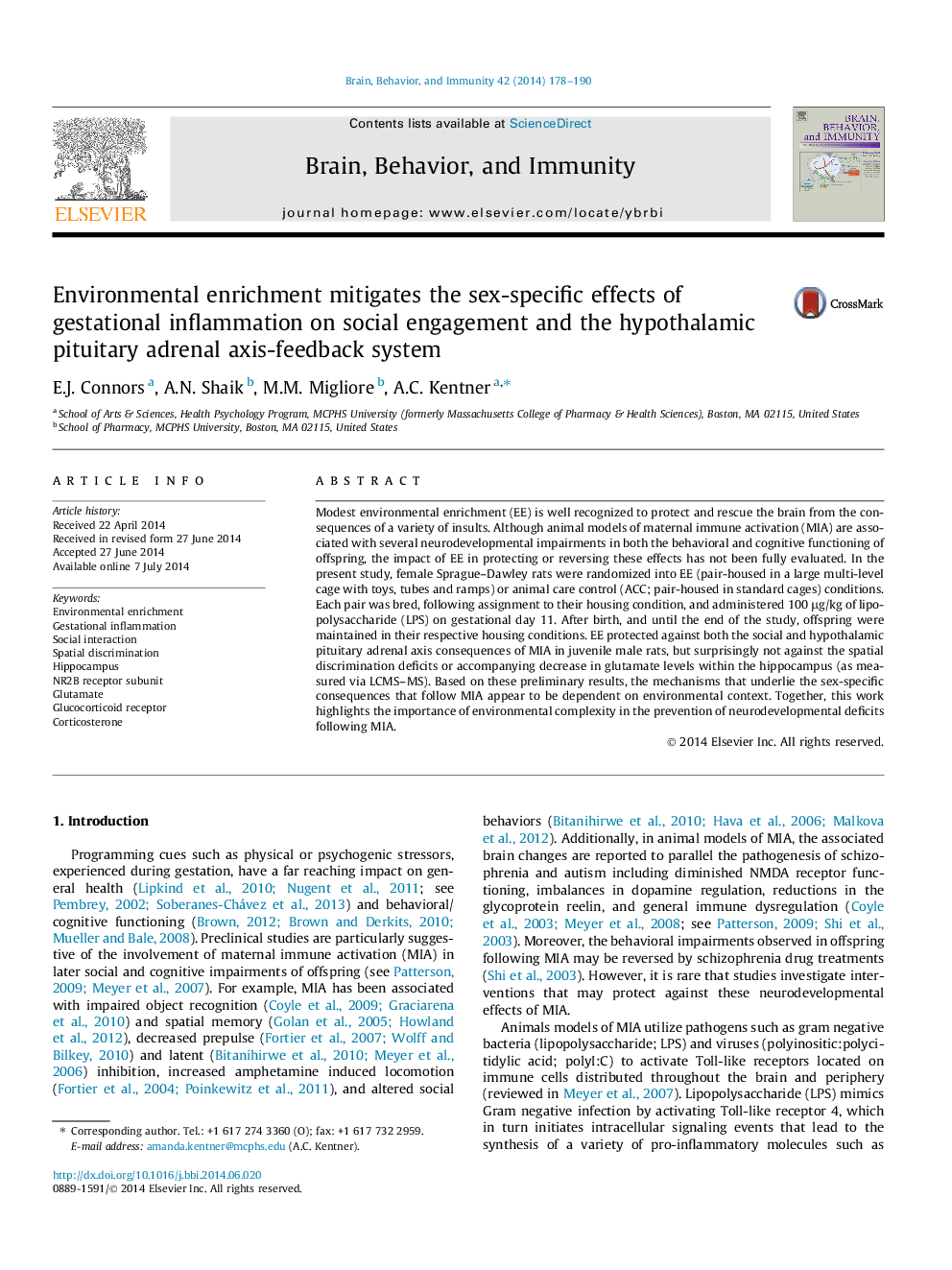| Article ID | Journal | Published Year | Pages | File Type |
|---|---|---|---|---|
| 7281571 | Brain, Behavior, and Immunity | 2014 | 13 Pages |
Abstract
Modest environmental enrichment (EE) is well recognized to protect and rescue the brain from the consequences of a variety of insults. Although animal models of maternal immune activation (MIA) are associated with several neurodevelopmental impairments in both the behavioral and cognitive functioning of offspring, the impact of EE in protecting or reversing these effects has not been fully evaluated. In the present study, female Sprague-Dawley rats were randomized into EE (pair-housed in a large multi-level cage with toys, tubes and ramps) or animal care control (ACC; pair-housed in standard cages) conditions. Each pair was bred, following assignment to their housing condition, and administered 100 μg/kg of lipopolysaccharide (LPS) on gestational day 11. After birth, and until the end of the study, offspring were maintained in their respective housing conditions. EE protected against both the social and hypothalamic pituitary adrenal axis consequences of MIA in juvenile male rats, but surprisingly not against the spatial discrimination deficits or accompanying decrease in glutamate levels within the hippocampus (as measured via LCMS-MS). Based on these preliminary results, the mechanisms that underlie the sex-specific consequences that follow MIA appear to be dependent on environmental context. Together, this work highlights the importance of environmental complexity in the prevention of neurodevelopmental deficits following MIA.
Keywords
Related Topics
Life Sciences
Immunology and Microbiology
Immunology
Authors
E.J. Connors, A.N. Shaik, M.M. Migliore, A.C. Kentner,
